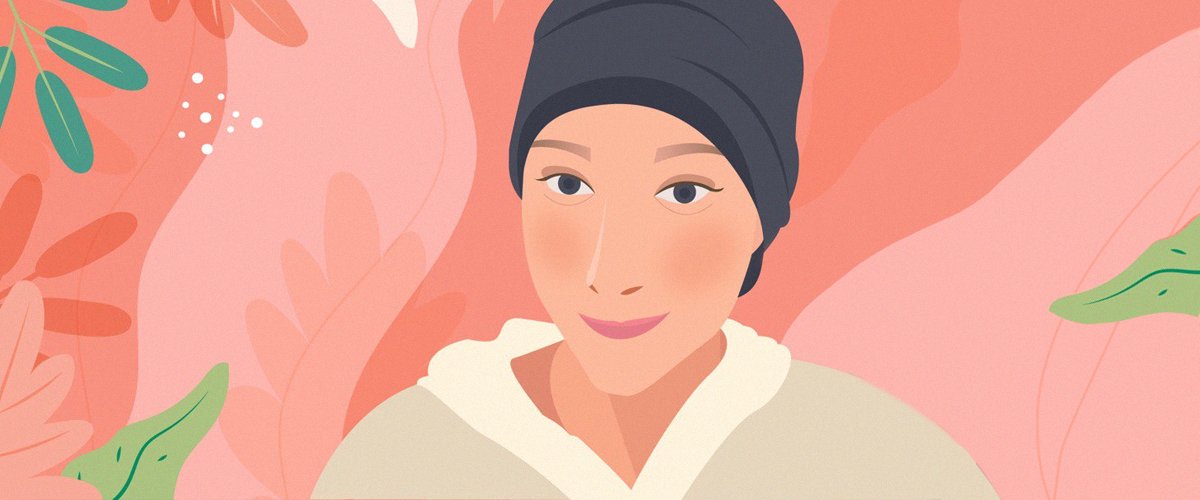
Women With Will: Amber Kneen on Being Diagnosed with Inflammatory Breast Cancer in South Korea
Shortly after being diagnosed with Inflammatory Breast Cancer and clearly afraid of the future, Amber Kneen apologized to her husband and told him, "nobody signs up to be a widower in their 30s."
Amber was diagnosed with IBC six months ago. Since she had previously searched for information, she knew that this type of cancer was very rare and very aggressive, as it happens in only one to five percent of all breast cancer cases.
In our efforts to raise breast cancer awareness as part of AmoMama's #WomenWithWill project, we exclusively interviewed Amber to learn more about her experience.
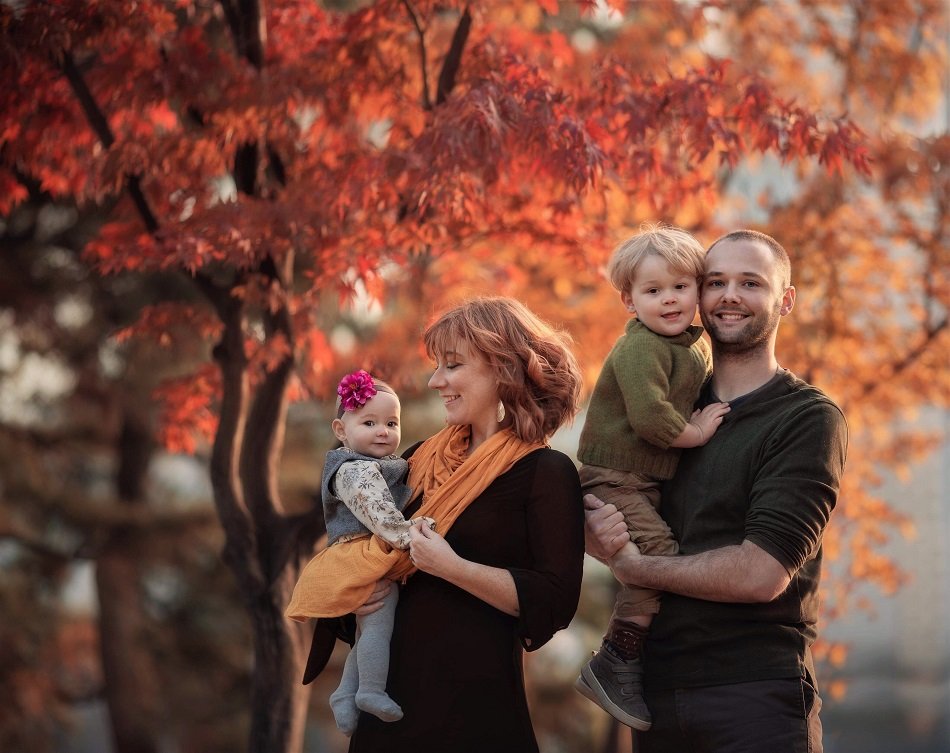
Amber Kneen and her family | Photo: Courtesy of Amber Kneen
"I – a 36-year-old Army veteran, wife, and mother of two – was diagnosed with Inflammatory Breast Cancer (IBC) on September 25, 2019.
I love being outdoors, traveling, and playing with my three-year-old and one-year-old. Before cancer, I was healthy and took it for granted.
Though my perspective and life have changed, inside, I am still the same person I was six months ago: I still want to make the most of each day, love on my family, and contribute to the world.
As per why I decided to see a doctor, I had a routine every Sunday night. By 8:15 pm, I was out the door to meet a neighbor for our weekly walk along the beach."
"One particularly warm muggy August stroll, we chatted about how our babies had changed our bodies, and we joked about how certain things would never be the same.
She complained about how she'd always hated having one breast larger than the other. That night when I got home, I took a quick shower, then glanced in the mirror and noticed that, in fact, my right breast was larger than the other – and not just a little.
'Has it always been like that? No. I just told my friend I'd never had that problem.'
My right breast felt fuller too, as if it had milk in it, which was not possible – I had weaned my daughter six months prior. When I mentioned all of this to my husband, he suggested making an appointment."
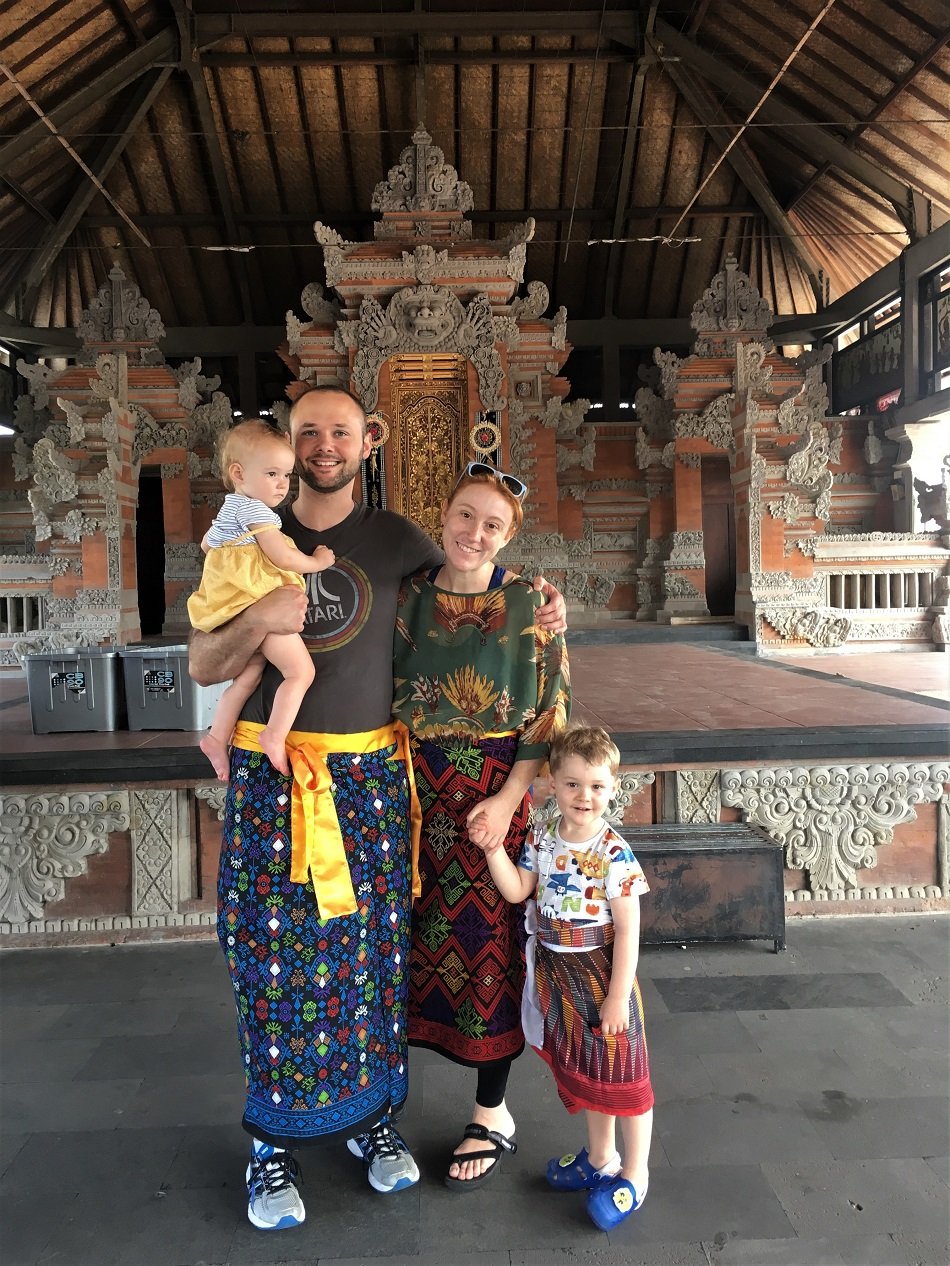
Amber Kneen and her family | Photo: Courtesy of Amber Kneen
"I agreed but sat on it for another two weeks because I didn't want some doctor with a why-did-you-come-in-here attitude telling me it was nothing.
Even though two of my aunts had been diagnosed with breast cancer, I honestly never thought it was something to be concerned about.
During annual physicals, when I shared this information, doctors never seemed concerned. One even told me it doesn't matter unless the diagnosis is that of a parent or grandparent.
Only after did I learn that both sides of my family have the CHEK2 genetic mutation, which greatly increases the risk of breast and colon cancer."
"My family and I were living in South Korea at the time of my diagnosis. Healthcare there is top-notch, and I truly believe I would not have been diagnosed so quickly had I been in the United States.
I was scheduled to see the breast specialist. He spoke very little English, and I spoke very little Korean.
He decided I needed an ultrasound. The tech in that room spoke no English, completed the ultrasound in silence, and walked me to the mammogram room for an immediate diagnostic.
Through the translator, he noted my ultrasound showed 'something' that was 'probably just inflammation.'"
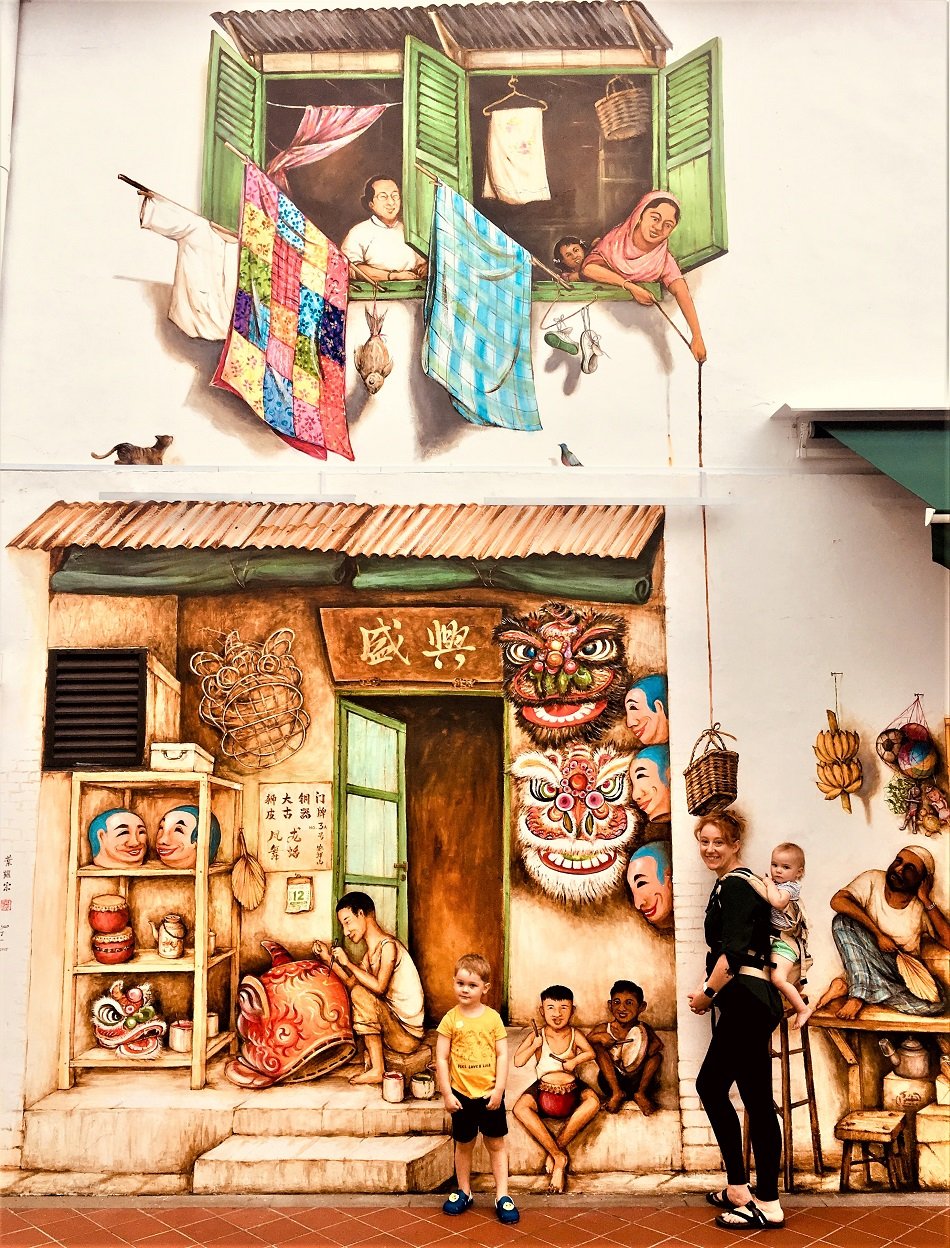
Amber Kneen and her family | Photo: Courtesy of Amber Kneen
"Because of my young age and good health, I had very little to worry about, but he would like me to come back the next business day for a biopsy. That procedure would be simple, and we would have the results in ten days.
At home, I tried to google what might be causing simple 'inflammation.' The words' inflammatory breast cancer' kept popping up over and over.
'What is this? Some aggressive cancer that accounts for less than five percent of all breast cancers, but ten percent of all deaths? Well, I am not so special to have that! But what do I have?'
The day finally came. Through the translator, the doctor told me he had not seen my results yet, so we would look at them together for the first time. I could see his computer screen."
"When he opened the biopsy results, in clear English, I read:
'High grade invasive ductal carcinoma, presenting as multifocal lymphatic tumor emboli – suggestive of inflammatory carcinoma.'
I was diagnosed with Stage 3C, triple positive inflammatory breast cancer.
My doctor was just as shocked as I was. He asked if I could read it and knew its meaning. I nodded since I had inadvertently google educated myself on IBC and thought I comprehended what it meant."
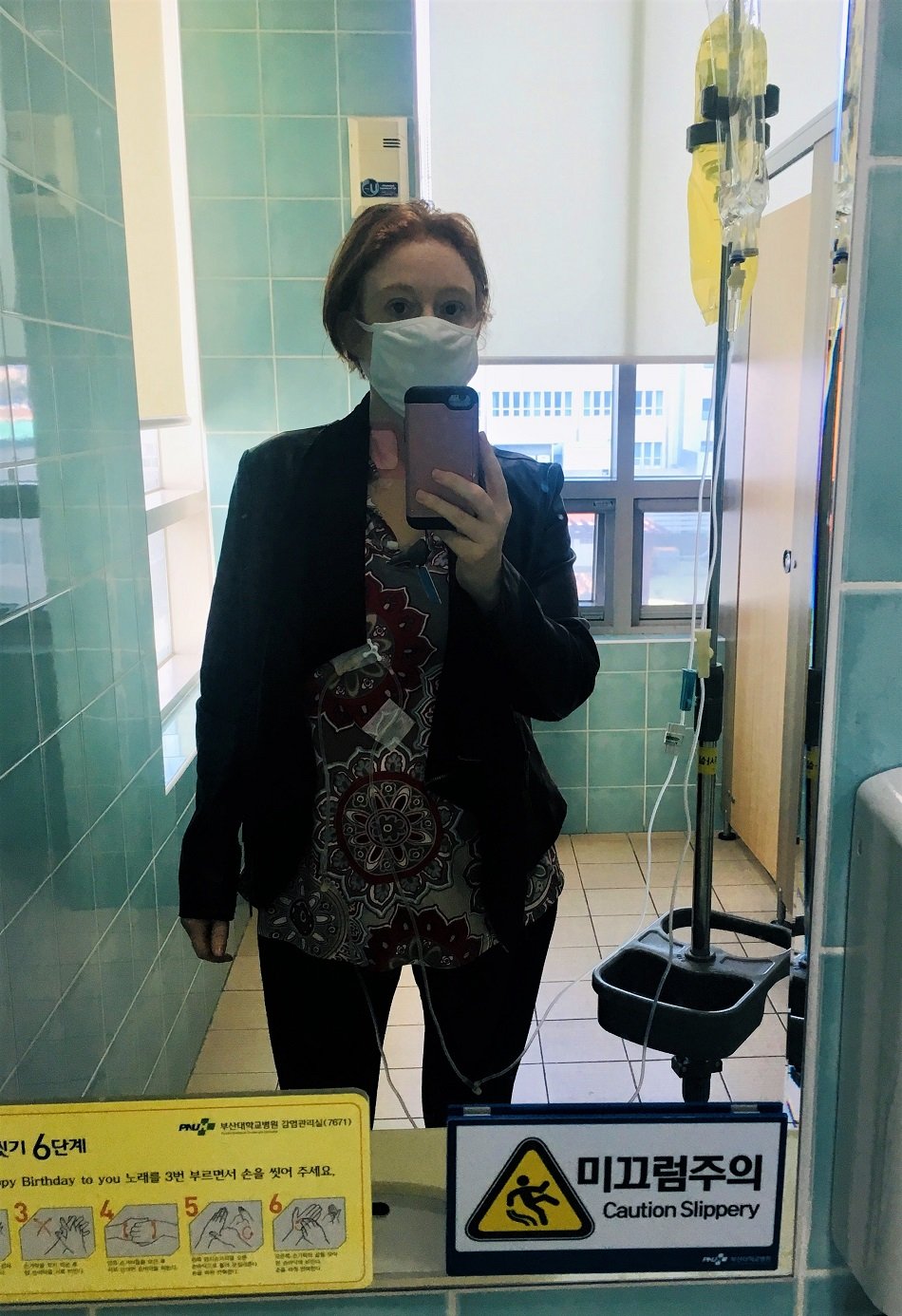
Amber Kneen getting treatment | Photo: Courtesy of Amber Kneen
"At the moment, I am still in the thick of things. IBC has a very clear treatment path of targeted chemotherapy first, then a complete mastectomy, followed by radiation.
I underwent my first two months of chemotherapy in Korea before deciding to relocate closer to home. I now receive treatment at the University of Arizona Cancer Center.
Chemotherapy is humbling. It required me to be vulnerable and accept help from my loved ones who wanted nothing more than to provide it.
I had diarrhea. I threw up. I lost 15 pounds. I went bald and lost my eyelashes and eyebrows. My immune system was so low I developed a staph infection with sores all over my legs. When my kids caught fevers, I couldn't be around them."
"I completed chemo in late January and had a double mastectomy in late February 2020. Reconstruction is not an option for at least two years because of the high risk of recurrence with IBC. I am currently preparing for radiation and a clinical trial next month.
Emotionally speaking, the first two weeks were the most difficult. My biopsy confirmed I had IBC, but as my doctor explained, it did not stage my disease.
'Was I stage 3 with cancer merely in my breast tissue, skin, and axillary lymph nodes? Or was I stage 4, with IBC already in my brain, bones, or elsewhere? Was I working with a 70% five-year survival rate or a 36% rate?'
While I may have had access to one of the best medical systems in the world, I was severely limited by my lack of language skills. There were no English-speaking social workers, no nurse's hotline, and no cancer support circles."
"Culturally, Koreans do not tend to question doctors or their treatment plans while Americans, or at least this American, needed information and had dozens of questions. I didn't know anything about cancer! Never in my life have I ever felt so alone and so afraid of the future.
I watched my babies asleep in their beds and quietly sobbed because I was afraid I wouldn't make it to their kindergarten graduations. I apologized to my husband because 'nobody signs up to be a widower in their 30s.'
Fortunately, after my first week, a friend asked if I had joined any Facebook cancer groups.
'I don't know,' I shrugged. 'Those aren't really my style, and I have my friends and family…'
Boy was I ever wrong!"
"I searched and found the IBC Research Foundation and its support group page. I discovered over 1,000 women on their own IBC journeys. I wasn't alone.
Better yet, these women had information and hope. Whereas Google had left me feeling I was on death's door, I now felt like the road up ahead was possible. Ginny Mason, the foundation's Executive Director, messaged me personally when I had tough questions.
She provided information on treatment protocols, Comprehensive Cancer Centers, and referred me to other resources when I needed them.
Today, I am mostly positive, thanks to my family, friends, and the IBC Research Foundation. Also, I feel so blessed to have the support that I do."
"Neighbors brought meals without asking, moms took turns picking my son up from the bus stop and taking him along for playdates. My mom flew on a plane across the world and helped take care of my daughter for six weeks until we could move back home.
In Tucson, we moved in with my sister and her family for the first few months. My sister and brother-in-law got up with my kids in the morning since my husband was out at work before they awoke.
My aunt drove me to every single doctor's appointment across town, and another sister brought me care packages and dyed her hair pink in solidarity.
At night I spewed out all my crazy thoughts and fears to my husband. He never cut me off. He listened quietly and tried his best to help."
"My curiosity and sense of humor have helped me throughout this entire process as I definitely continue to joke in between sobs.
Laughter feels a lot better than crying and provides a way to release your scariest feelings out loud without scaring your loved ones (as much).
Also, I wish I could say I learned guitar, studied Spanish, and found the meaning of life after being diagnosed, but instead, life still goes on. Time moves just as quickly with cancer and one's looming mortality."
"If I had to share a piece of advice for people who want to support cancer patients, I'd say that it isn't easy to ask for help, and nobody going through this process even knows what kind of help they need. If you can, don't ask. Just do.
Set up a meal train where friends can sign up to leave dinner at the front door for the first several days after each chemo treatment. Simply check in every few days to let them know you are around.
Offer to accompany them for a walk or handle their grocery list, so they don't have to go out when their immune system is compromised."
Written by: Edduin Carvajal
Project editor: Krystyna Dovhal
This interview is part of AmoMama's #WomenWithWill. It was created to raise breast cancer awareness and give women a platform to share their experiences. If you are a breast cancer survivor or are currently being treated and want to tell us your story, please contact us through our email or other social networks.
The information in this article is not intended or implied to be a substitute for professional medical advice, diagnosis or treatment. All content, including text, and images contained on news.AmoMama.com, or available through news.AmoMama.com is for general information purposes only. news.AmoMama.com does not take responsibility for any action taken as a result of reading this article. Before undertaking any course of treatment please consult with your healthcare provider.
